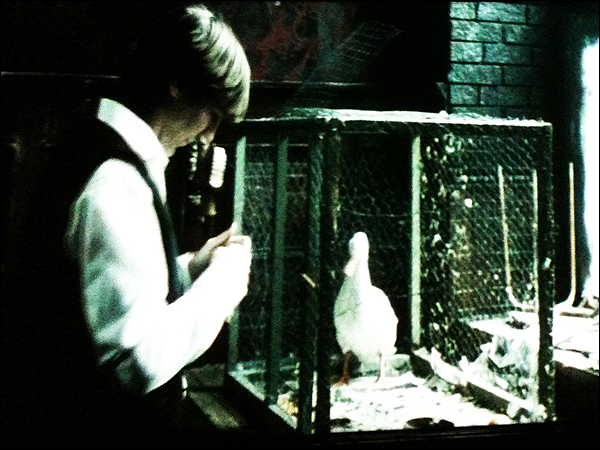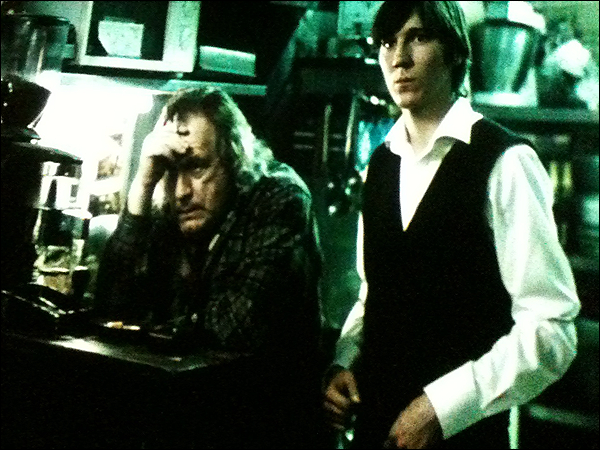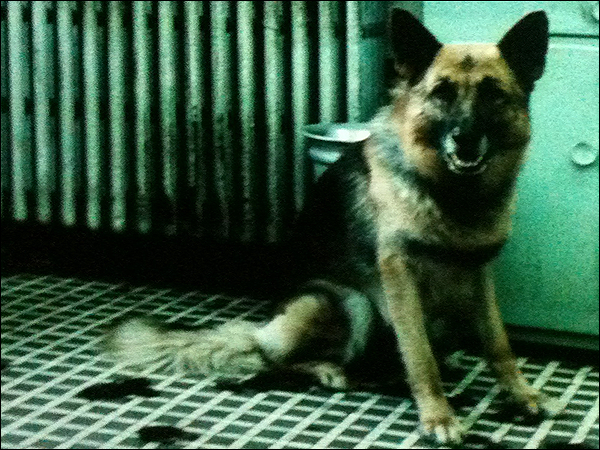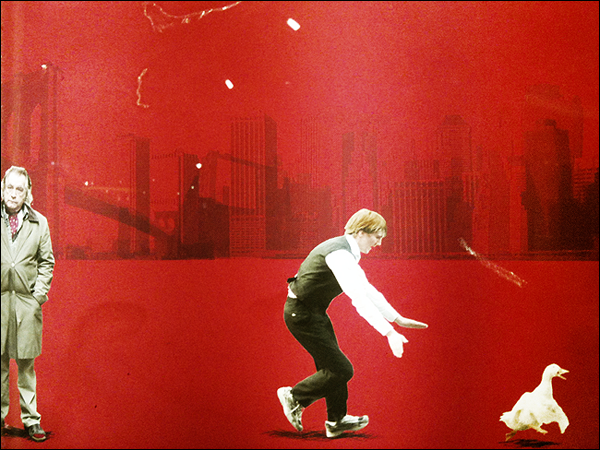Lucas is a homeless living in the streets with only a bony stray kitten as a companion; Jacques is the owner of The House of Oysters, a bar he runs alone with his dog Rococo. Apart from their pet friends, Lucas and Jacques don’t seem to have much in common at first sight: Lucas is a docile good-natured boy, a little on the naïve side; Jacques is an embittered old man waiting to retire in Martinique whose primary business rule is “be familiar, not friendly” to the customers.
As it happens sometimes, life is ruled by chance. With the help of chance the two men, Lucas and Jacques, are brought together. Lucas isn’t so naïve to accept his miserable life, so he tries to commit suicide; Jacques, with his reckless drinking and smoking and with his outbursts of fury brings upon himself his own misery and ends being struck by a heart attack. The two, despite their differences – or rather thanks to them – start a peculiar friendship in the hospital where both are recovering. Their friendship will continue also after they are discharged, since Jacques decides of his own accord he needs Lucas’ help to keep on running his bar: taking advantage of the boy’s weak character, he forces Lucas to follow him and offers him job, food and lodging. Jacques, from the very beginning, dominates his companion with cynicism and selfishness, to the point of planning every aspect of his friend’s life. Lucas, with his lack of firmness, demonstrates a certain degree of ineptitude at managing human relations, allowing Jacques to do whatever he wills to. The boy – though unable to make a decent coffee according to his boss – with his unassuming looks proves to have a talent in reassuring and making even the most evasive customers feel at ease, soon surpassing Jacques in the preferences of his bar’s habitués.

The continuous interaction of two individuals with strong idiosyncrasies, guided also by several random events – Lucas completely unexpectedly finds a woman and Jacques has other attacks endangering his already unstable health – brings changes in both Jacques and Lucas personalities, apparently not always for the better. Each of them loses and gains something at the same time. But this swapping of qualities doesn’t necessarily mean advance in the life of the two men. The ending comes not completely unexpected to confirm it, partly bringing everything back to its place, and also revealing a subtler meaning in the film’s title and poster that cannot be understood till the whole characters’ development and plot are complete.
Nói Albinói ’s director Dagur Kári once again delivers a film dealing with otherness and longing for escape from a grim reality that too often forces the individual that doesn’t act in conformity with society into a state of personal imprisonment through dereliction and despair. The main characters of The Good Heart are outcasts whose personal history of solitude and marginalization help to establish a bond, sometimes pointing towards destructiveness, some others towards constructiveness.
Chance and its unforeseen effects have an important role in The Good Heart, but as it happened for Kári’s other works, chance is never an absolute power acting from the outside. On the contrary, it is often triggered from the inside, by the characters’ more or less desperate choices.
Despite the dual nature of the film would seem at times to say otherwise, Jacques is the main character of the story and the eye through which the spectator follows the greatest part of the events. Jacques’ character shows a full development whereas Lucas only appears to; Lucas’ character at its roots remains a constant, while Jacques experiences a broad variety of emotional and physical changes. Lucas is the litmus paper that allows Jacques to fully express and test himself. That’s probably partly the reason it’s easier to sympathize with Jacques than with Lucas, even when the choices he makes seem unreasonably crazy. Like Nói, Lucas remains sort of impenetrable, bringing a certain degree of rarefied aura into the characters’ otherwise strongly realistic environment, vital background and antics.
The acting from all performers is satisfactory throughout the whole film. Paul Dano’s usual meekly deadpan expression fits quite well the awkwardly good-natured attitude of Lucas’ character. The acting really reaches its climax though with Brian Cox’s performance as Jacques, truly authentic, rich in emotional nuances and even moving at times.
The frequent use of handheld camera, the recurring close-ups, the cinematography enhancing washed-out colors that bring out the ambience’s colder hues – Noi Albinoi’s Rasmus Videbæk’s trademark – and the grain of the film, prevent it from turning into a too markedly theatrical form of character piece, keeping it on solid cinematic grounds. The soundtrack – once again for this film work of Kári’s Slowblow – represent a proper though discreet musical amplifier; both diegetic and non-diegetic sound add to the construction without making it collapse under overbearing redundancy.
Many criticized director Dagur Kári for “going American”, for abandoning his usual grounds of more modest production relying on minimal stories set in the almost metaphysical atmospheres of Northern Europe, to venture into more mainstream film-making. Maybe it is true that some of the subtler appeal of the previous films, especially Nói Albinói, is lost. But with The Good Heart Kári remained overall true to his former self, creating something definitely worthy.
Title: The Good Heart
Year: 2009
Director: Dagur Kári
Genre: Drama, Comedy
Country: Iceland, USA, Denmark, Germany
Runtime: 95 minutes
Language: English



